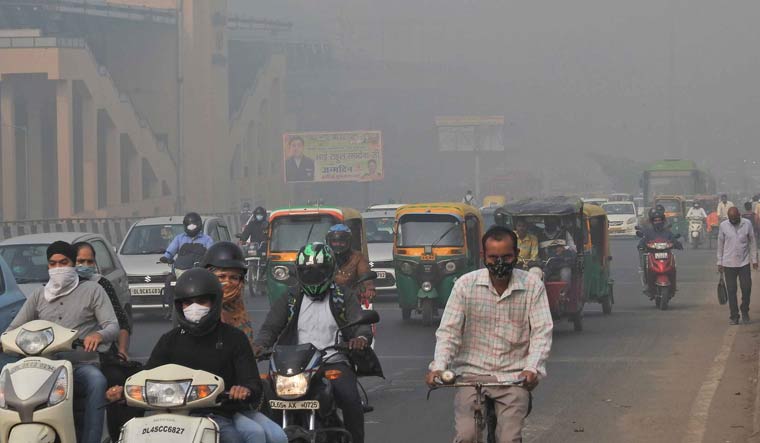Every year, come winter, the air quality in Delhi depletes to an alarmingly dangerous level. In fact, not just Delhi, according to some sources, 14 out of the 20 most polluted cities in the world are in India. Top doctors have advised against physical activity, even for healthy people, to avoid straining the system. Particulate matter levels are, in some places, more than ten times the safe limits. Some of the matter in the air can cause long term damage to the lungs and to cardiovascular health. This situation really demands urgent, decisive and collective action.
The sources of pollution are many, and it will be unfair to attribute blame to any one class of people. The pollution in the national capital is a mixture of vehicle emissions, industrial emissions, construction dust and smoke. Delhi’s geographical location means that the relatively calm breeze is unable to blow away the pollution, thus it all stagnates in the area. Winds blowing from Punjab and Haryana also bring with them smoke from paddy stubble burning.
The Supreme Court, on various occasions has said that the right to a clean environment is a fundamental right. The apex court has clearly said that Article 21, which guarantees the ‘Right to Life’, extends beyond that. It has been decided that the right to life, includes the right to a clean and healthy environment. The court has gone to the extent of even banning public smoking—to protect the right of non-smokers. Sale of fireworks, too, was banned this year.
Legislative intent has been similarly progressive. The Constitution, in the non-enforceable Directive Principles of State Policies, mandates the state and citizens to nurture a healthy environment. The Air (Prevention and Control of Pollution) Act of 1981 and the Environment (Protection) Act of 1986 both seek to provide a clean environment. The National Green Tribunal as well the states have banned stubble burning, yet it is rampant. The Delhi government, also implemented the ‘odd-even scheme’ to curb pollution. This year, sale of fireworks was banned in the NCR, and yet this ban was recklessly disobeyed. Delhi even imposed an unrealistic punishment of up to seven years in vain.
Law has its limitation, and this saga demonstrates it most vividly. The courts and the Parliament have both shown initiative in curbing the menace of pollution, yet the impact is negligible. The coercive nature of law can only do so much. In order for laws to be effective, at least a majority of the population has to abide by it. Simple coercion is usually not enough to command compliance.
We all need to acknowledge that pollution is a problem created by us. Steady and quick demands for wheat and rice, indiscriminate construction, usage of vehicles—all have contributed to the problem. Blaming certain groups of people will certainly not help. Unfortunately, the discourse, in the past, has very swiftly been unfairly polarised. The ban on sale of fireworks, for instance, was seen by some as an attack on religion. Similarly, ban on stubble burning has been seen as an additional financial burden that already strained farmers have to incur.
We need to constructively assess what the problem is, first and foremost. Then, sustainable, collective action needs to be taken to remedy it. Simple coercive measures will not work, and neither will blaming others. Measures like offering alternative methods of clearing fields and trying different crop combinations need to be encouraged.
A basic principle of life has been to leave the world a better place than the one you came in. We have made tremendous progress in fields of science and technology. Things, some as basic as good healthcare, that once were the preserve of the elite are becoming more accessible and affordable. Food production is increasing, as is the ability to move about. Yet, it all comes at a cost—and that has been the tremendous pollution levels. We need to unequivocally act, and act fast. The cruel irony is that we are choking on our own development.
Vishavjeet Chaudhary is a trained barrister-at-law and an advocate in Delhi.
The opinions expressed in this article are those of the author’s and do not purport to reflect the opinions or views of THE WEEK.







